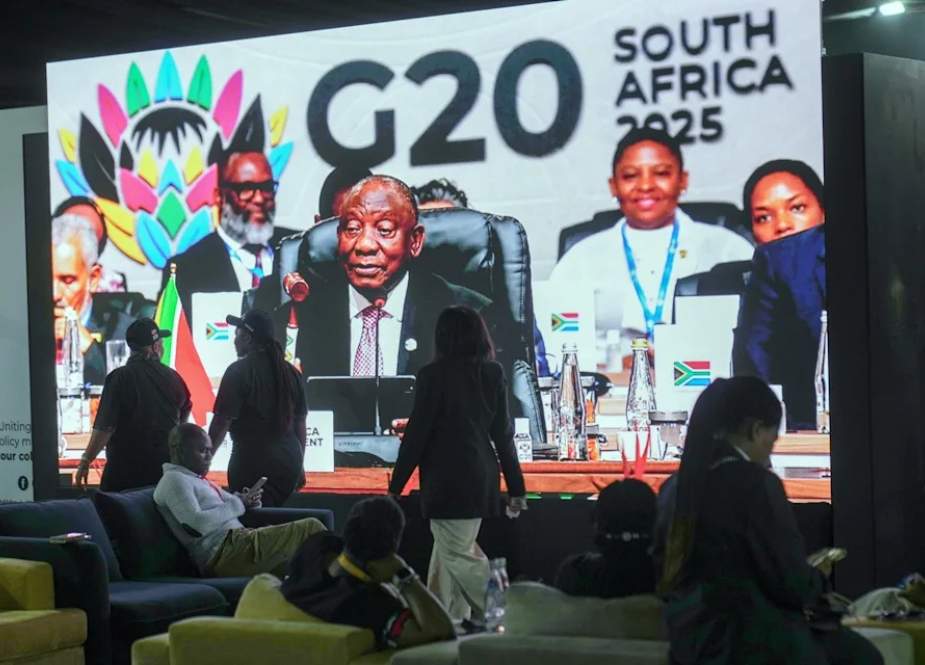Accomplice to the murder of Gazans: concerned about African human rights?
The United States’ decision to boycott the G20 summit in South Africa – and Donald Trump’s absence from it – is one of the most controversial diplomatic moves in recent months.
Washington ostensibly justified the boycott by claiming that the South African government was committing “genocide” against white people, a charge that Trump has repeatedly repeated in his speeches in recent months.
At first glance, this narrative seems like a moral stance in defense of human rights, but a deeper look reveals that the issue is rooted more in US domestic politics, geopolitical rivalries, and the calculated use of identity narratives than in human concerns.
The combination of these three dimensions provides a clear picture of this confrontation and shows how the battle over human rights concepts has become a tool for a power game.
1- The accusation of genocide: what is the truth?
The main justification for the US boycott of the meeting is the claim that “genocide” is taking place against white people in South Africa, but this accusation does not comply with the legal and international definition of genocide. According to the UN Genocide Convention, this crime occurs when a state or group acts with the intent to destroy, in whole or in part, an ethnic, racial, national, or religious group. No credible legal source or international body has ever observed such intent and behavior in South Africa.
South Africa today is a constitutional democracy in which all citizens – white, blac,k or mixed race – enjoy equal rights and actively participate in the political, economic, and social spheres. Whites still play a prominent role in the economy, are present in the government, and there are no discriminatory laws against them, as was the case during the apartheid era. Therefore, the claim of genocide has no legal basis.
The root cause of this political controversy is a bill in the South African parliament that aims to fairly redistribute agricultural land, which was unfairly allocated to whites during apartheid.
Apartheid, which was implemented in 1948, was built on many policies established by previous colonial regimes. A central element of the national apartheid agenda was the Natives’ Land Act of 1913, which limited land ownership by black South Africans to just 7% of the country’s land (increased to 13% in 1936). The Act created “reserved areas” for black South Africans, beyond which they were prohibited from renting or buying land. This led to widespread forced evictions and the displacement of black landowners. The Act laid the foundation for the territorial segregation and economic discrimination that have persisted to this day, despite the demise of the apartheid system.
A 2017 land ownership census showed that white South Africans owned about 72% of the country’s agricultural and pastoral land, while black South Africans owned a combined 4%. To put that into perspective, the 2022 census showed that white South Africans made up 7.3% of the country’s population, while black South Africans made up 81.4%.
As a result of the same historical structure, today, whites, who make up only 7% of the country’s population, own about 70% of the country’s fertile agricultural land. This glaring inequality is seen in the minds of many black citizens as a continuation of the economic legacy of apartheid.

